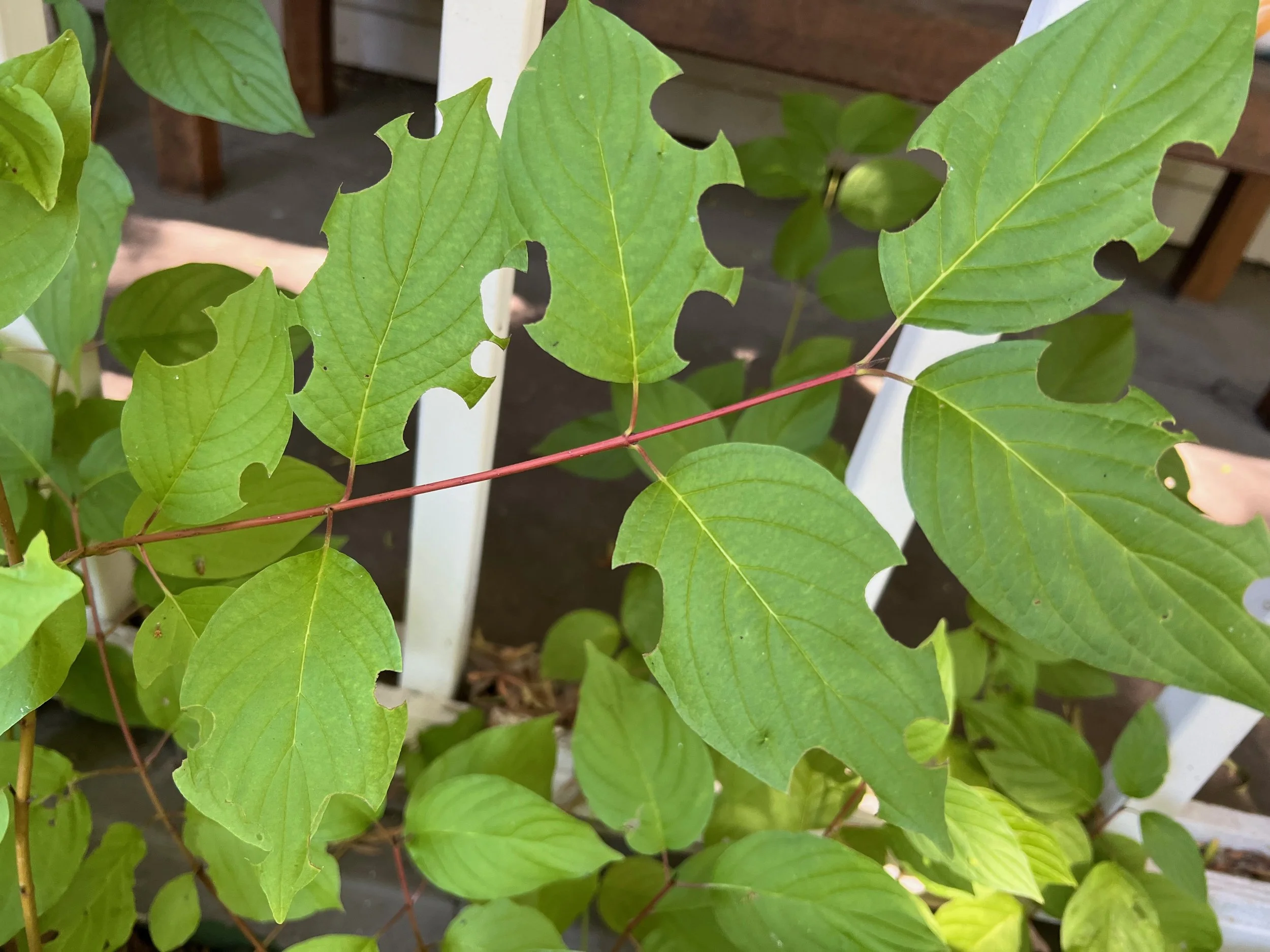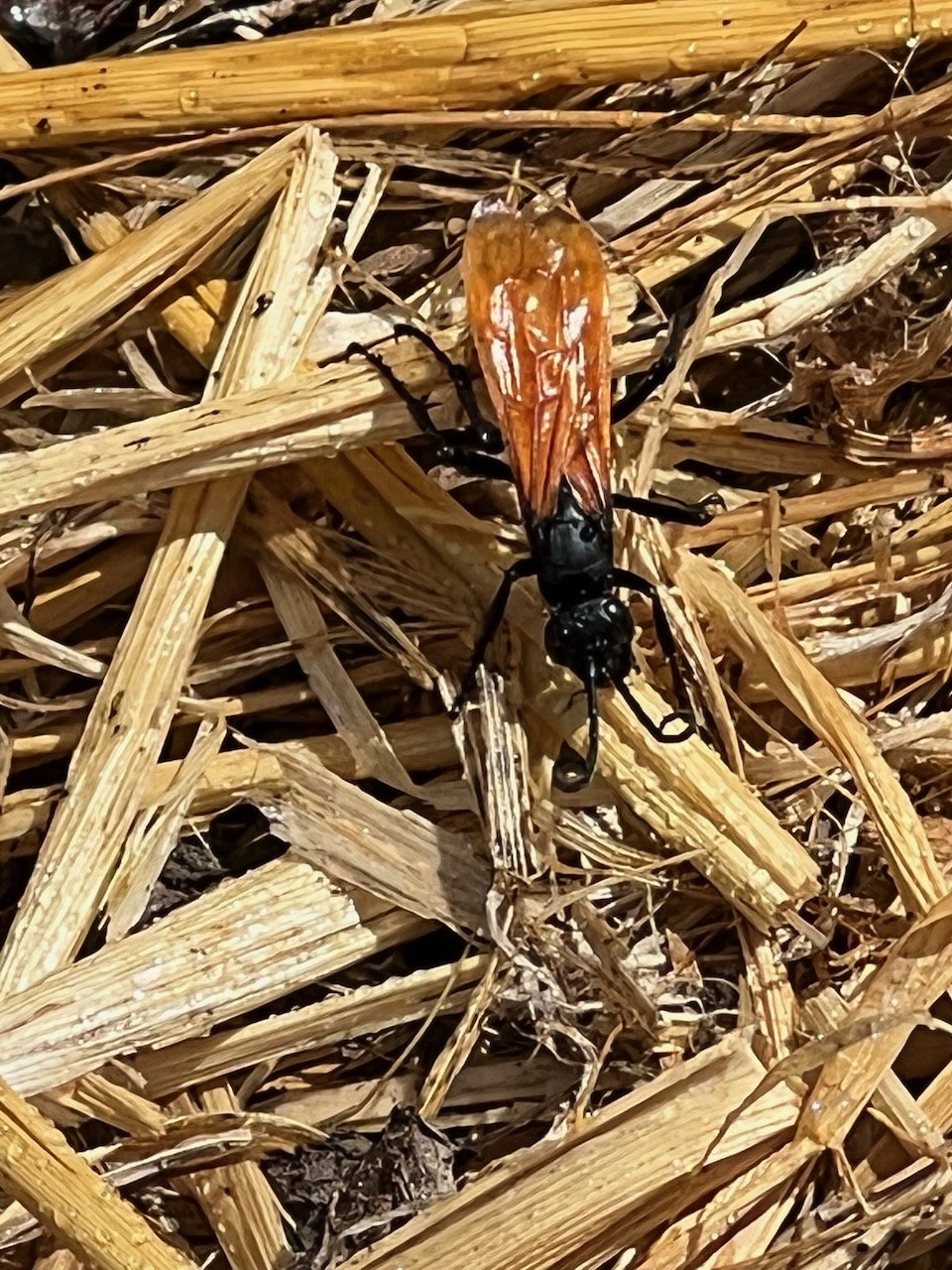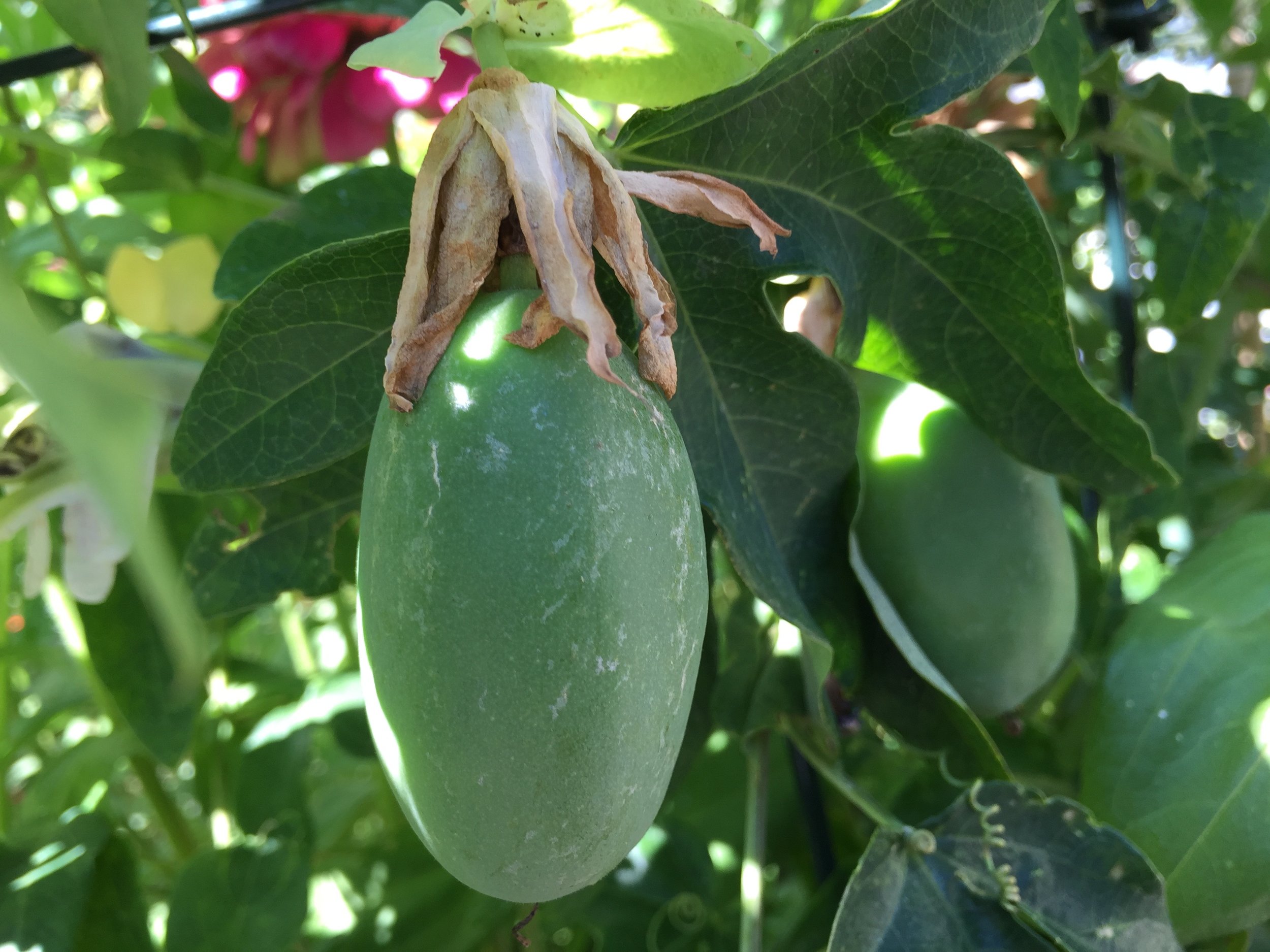There's a lot of ecological buzzwords that can be confusing, or we assume we know what they mean even if the real meaning is lost on us. One of those buzzwords is biodiversity, which simply means 'the variety of life in the world or in a particular habitat or ecosystem.' This concept is important, if we want our gardens to be healthy ecosystems. Well, what is a healthy ecosystem? One where the biological community of interacting organisms is robust, eating and reproducing and going about their tiny lives. And why is a healthy ecosystem important? Every species, no matter how small, has an important role to play in our environment. Depending on how you see things, our planet either evolved, or was designed to evolve, in perfect harmony. Our human life is part of that and has an important role to play. But things have gotten a bit out of balance, and our human environments have encroached on the wild ones, and we no longer live in harmony with that biological life. The loss of habitat for these creatures is staggering. If we lose this perfectly evolved system that nature has developed, we lose everything. Recently the UK paper The Guardian published an article about the decline of insect populations - it's worth a read (you can find it HERE). There is scientific evidence that all insects are disappearing - not just the highly publicized ones like bees and butterflies - but all insects. We rely on a healthy, diverse ecosystem, because we are part of it, and if it disappears, we are in serious trouble.
We may not be able to affect change on a large level, but one thing we can control is how we interact with the space directly around us, namely, our yards. We all want beautiful spaces surrounding us, and beauty is important. But do we want beautiful dead spaces? Or beautiful living spaces? I would argue that the living space is actually more beautiful because of its diversity of creatures and plants.
One way to increase insect life in your garden is to allow leaves to accumulate, rather than raking them and disposing of them each year. Now I know there are places in your yard where you must rake. I get it - I have to clean leaves up off our driveway and sidewalks every year, so I know. Plus sometimes the leaves can make such a deep mulch that they kill certain plants. So we can agree that there are portions of the yard that need tidying. But we also all have certain parts that are tucked away, and other parts that could do with a layer of mulch. Why not leave the bulk of your leaves on the ground to decompose naturally?
It turns out that leaf litter is an important ecological habitat, harboring larvae and eggs as well as overwintering creatures. Worms, spiders, and caterpillars spend a lot of time in leaf litter, and both fungi and bacteria feed on it and convert it to nutrients for your nearby plants. The leaves are also nature's way of getting nutrients back into the soil, as they provide nitrogen when they decompose under the tree.
The Nature Conservancy is running a campaign right now to raise awareness about the importance of letting leaves lie, and you can take the pledge to be a 'lazy gardener' at their site, HERE. There's also some great information about what leaves do for the ecosystem of your garden, and why to make brush piles around your yard, leave dead tree snags standing, and eschew chemicals. Honestly, that last point might be the most important of all: Do not use chemical fertilizers, herbicides, or pesticides on your property.
I took the pledge this year, but honestly I've been actively working on increasing our insect population for quite some time now. We use wood chips in a large portion of our yard, which helps to harbor all these creatures, as well as provide organic matter to the soil, conserve moisture, and deter weeds. We let a lot of our leaves and plant clippings mulch naturally beneath the plants. I leave seed heads at the end of the season for the birds. I've spent years making wood piles, brush piles, and stone piles, all to attract lizards and snakes (lizards, we've got by the thousands; snakes, none that I have seen so far). As you know we try to have flowers blooming as much of the year as possible to support insect life. I haven't used any pesticides, organic or chemical, in many years (though I do use organic products in my beehive to inhibit the varroa mite load, and I occasionally use copper on my peach tree), and we have no need for herbicides, as I hand pull any weeds that come up (and they are rare). I've stopped using chemical fertilizers completely, as the high salts that result can kill soil life. (More to come on a later post about all I have been learning about soil life.)
The result of this is that our garden is always teeming with insects, of all kinds. Both 'good' and 'bad.' Predator and prey. It's a healthy, living system that brings me a great deal of joy. The other day I was doing homework at the dining room table when I saw the chickens run to the edge of their run and squawk. I went outside to see what was happening, and a neighbor had stopped by to look at the garden. She was leaning on the fence smiling. "I'm just watching all the life, " she said, as butterflies and bees flitted in the flowers in front of her. Can I just say how pleased I was? How full of satisfaction? And it's EASY, not hard. Just pledge to be a little bit of a lazy gardener.
Edit 10/23: Just saw this article in the Guardian from Friday regarding the same issue, another good read, related to the one above.























